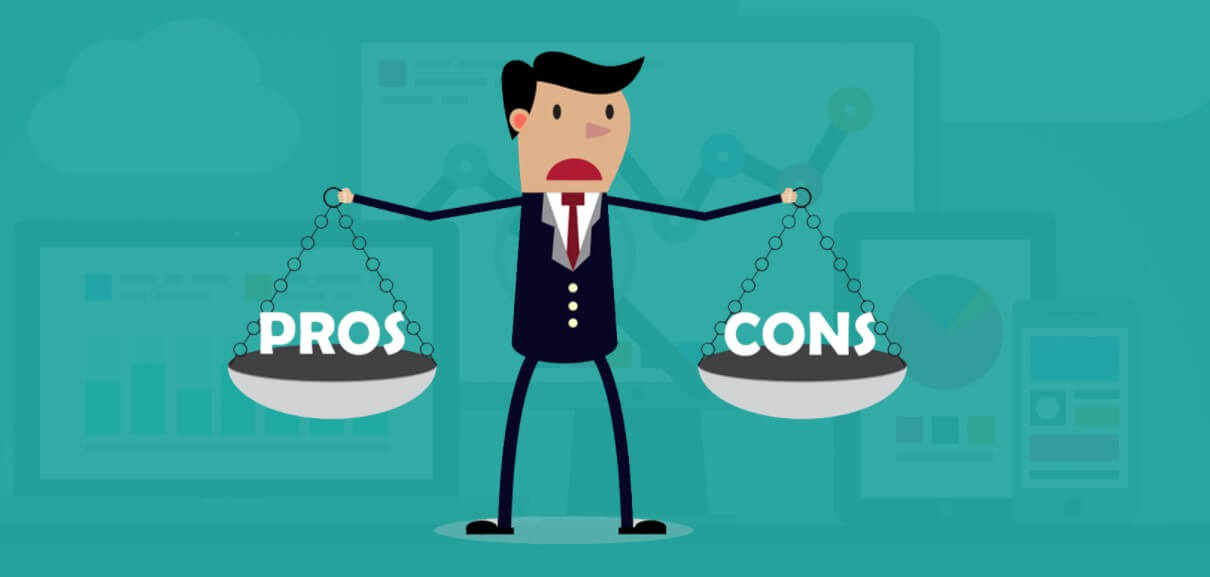If you’ve ever considered becoming a forex trader, you have undoubtedly wondered if it would be a lucrative investment. Forex trading has helped many traders to amass a great deal of wealth, while it has caused others to wipe out their investments altogether. There are good and bad aspects to trading and considering those factors is important before deciding if trading is something that you should try.
Below, we will start positive with the plus sides of opening a trading account, before moving on to the cons.
Pros
Flexibility
Forex traders never have to worry about a stressful boss standing over their shoulder. They get to be their own boss, set their own hours, and work from anywhere with an internet connection. There’s no need to commute to work or even to change out of your pajamas if you don’t want to. You could work from anywhere in the world because traveling is no issue. This is one of the main reasons that many people dream about ditching their desk job to become a forex trader.
You can get a free education
Learning everything you need to be a successful forex trader is right at your fingertips, online for free. The internet is filled with articles, videos, and other resources that can be accessed free of charge. It’s true that this will take some effort on your part, but anyone can accomplish this with a little hard work and determination. Remember that investing time into your forex education is one of the most important things you can do before you get started trading.
Leverage
Forex traders use leverage to increase the size of their trades. This gives traders with a smaller amount of capital the opportunity to make bigger profits. This is another one of forex trading’s main draws.
It doesn’t take much to get started
You don’t need much to become a forex trader. Simply sign up with a broker from any device with a working internet connection, make a deposit, and you’re ready! Of course, you’ll want to be well-educated before you start, but even acquiring an education is free. Anyone that puts their mind to it can do this – it doesn’t require having a lot of money already or other difficult steps.
Cons
You need a starting investment
Just to be clear – you can get started with as little as $5, but this isn’t going to leave much room for trading. Those who can afford to deposit a few thousand (or more) dollars are going to make more significant profits. If you’re just looking to make a little extra cash here and there that shouldn’t be a problem, but those that want to support themselves purely by forex trading need to have a larger investment to start with. Sadly, most of us don’t have $20,000 or in disposable income just so sitting in our bank accounts. This means that it will take a while to work up to making larger profits.
Trading is risky
Trading involves investing your hard-earned money with no promises that you’re going to see any profits. Or even worse, you could lose it all. In a way, it involves the emotions one would feel with gambling, that trading decisions are less based on chance. Traders consider a variety of factors, like technical or fundamental analysis, which makes their decisions more founded. Still, at the end of the day, nobody can 100% predict the way the market is going to go.
Leverage
We know that we listed leverage under the pros, but it can also be a con. Many beginners make the mistake of trading with too high of a leverage, which can quickly end your career. Leverage is often referred to as a double-edged sword because it can go both ways. If you’re a beginner, you don’t need to use the highest leverage your broker has available just because you can. Start small and work your way up, or leverage could be your downfall.
Scammers
Scammers can be avoided if one knows what to look for, but many beginners do fall victim to shady brokerages. Whenever you’re looking at companies, check for regulation, and do further research before you give out any personal information or open an account. Some brokers have impossible withdrawal conditions, have customer support teams that you can rarely get ahold of, and so on. New brokers pop up every single day and only some of those options are legitimate. Choosing a forex broker is not a quick decision, choosing the right one takes thought and comparison.
The Bottom Line
Anyone that is interested can become a forex trader with some know-how and a small investment, but one really needs to consider the pros and cons first. You might make a lot of money, or you could lose everything you invest. The good news is that some of the downsides can be avoided. If you secure a good forex education, research your brokerage before opening an account, use a leverage that suits your skill level, and take risk-management steps, then you’ll be more likely to succeed.
The ultimate downside to Forex trading is the risk involved. Even if you’ve been practicing on a demo account, switching to a live account can feel overwhelming and you might not realize the way that your emotions, slippage, or other live conditions could affect you. If you are willing to put in the work to learn, then we fully recommend opening a trading account, just be sure that you’re investing from your disposable income, not from the money you need to live on or support your family. It can also help to adjust your expectations if you’re starting with a small investment.


